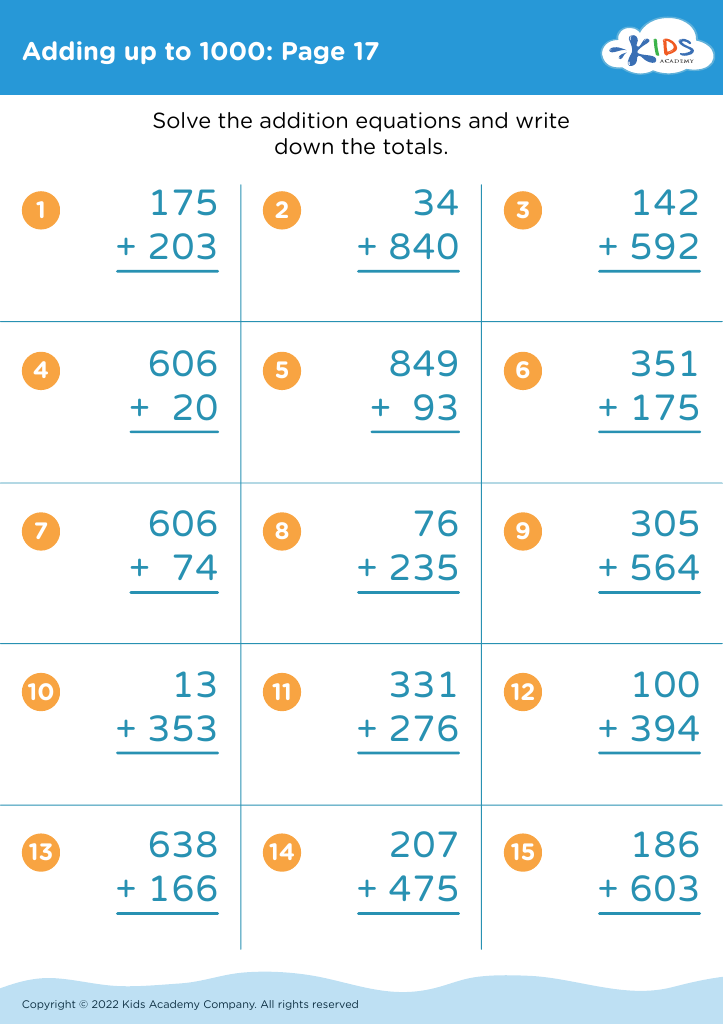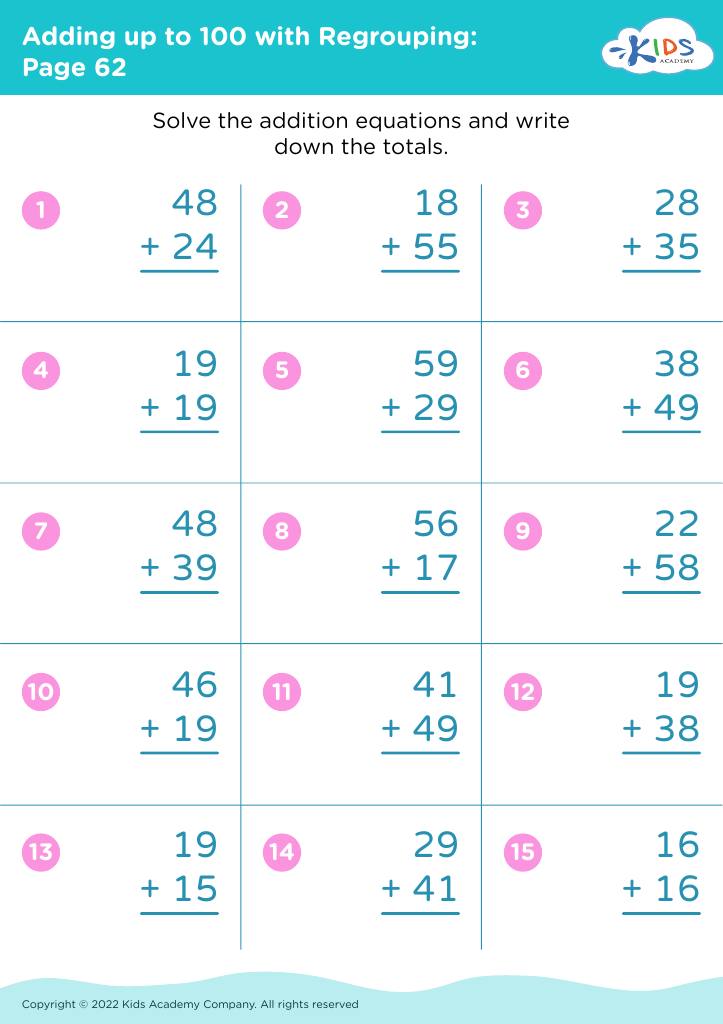Number comprehension Worksheets for 8-Year-Olds
16 filtered results
-
From - To
Develop your child's math skills with our Number Comprehension Worksheets designed for 8-year-olds! These engaging and educational worksheets from Kids Academy focus on enhancing number knowledge, place value, addition, subtraction, and other key mathematical concepts. Through entertaining exercises and fun activities, children will improve their understanding of numbers, boosting their confidence and academic success. The worksheets are thoughtfully crafted to align with school curricula, ensuring they support classroom learning while making practice enjoyable. Equip your 8-year-old with the tools to excel in math—explore our comprehensive collection of number comprehension worksheets today!
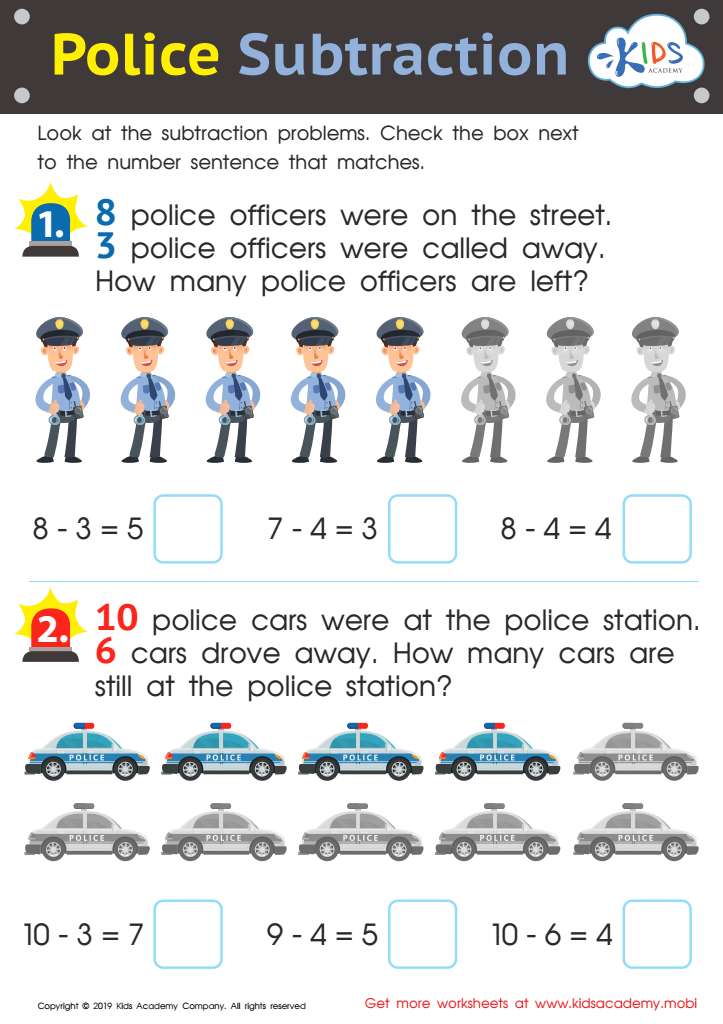

Police Subtraction Worksheet
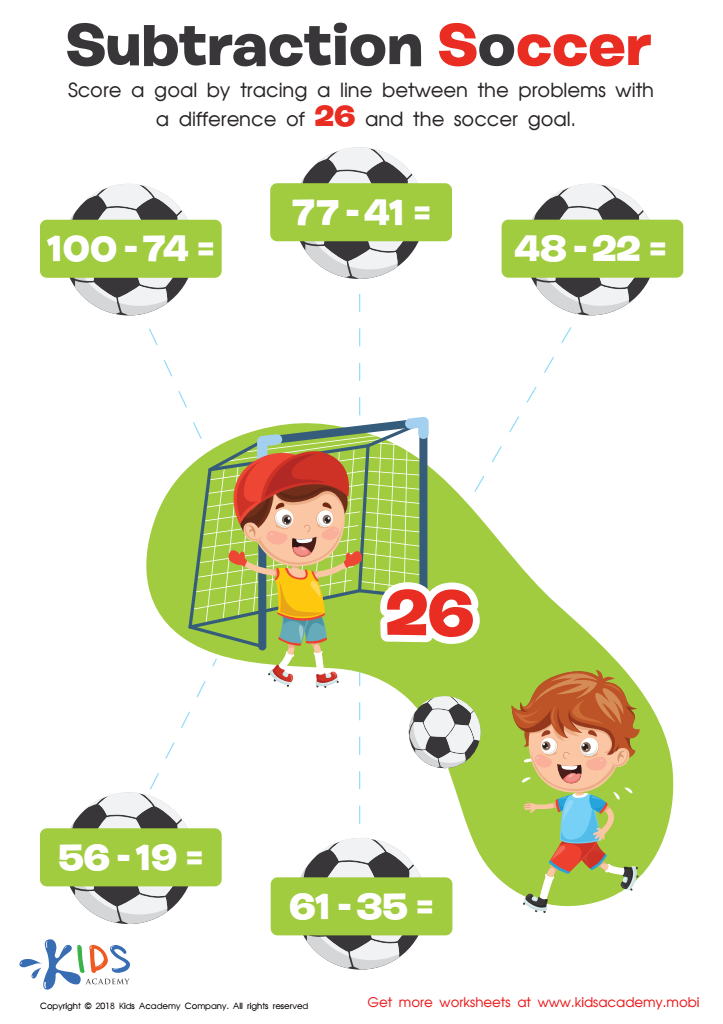

Subtraction Soccer Worksheet
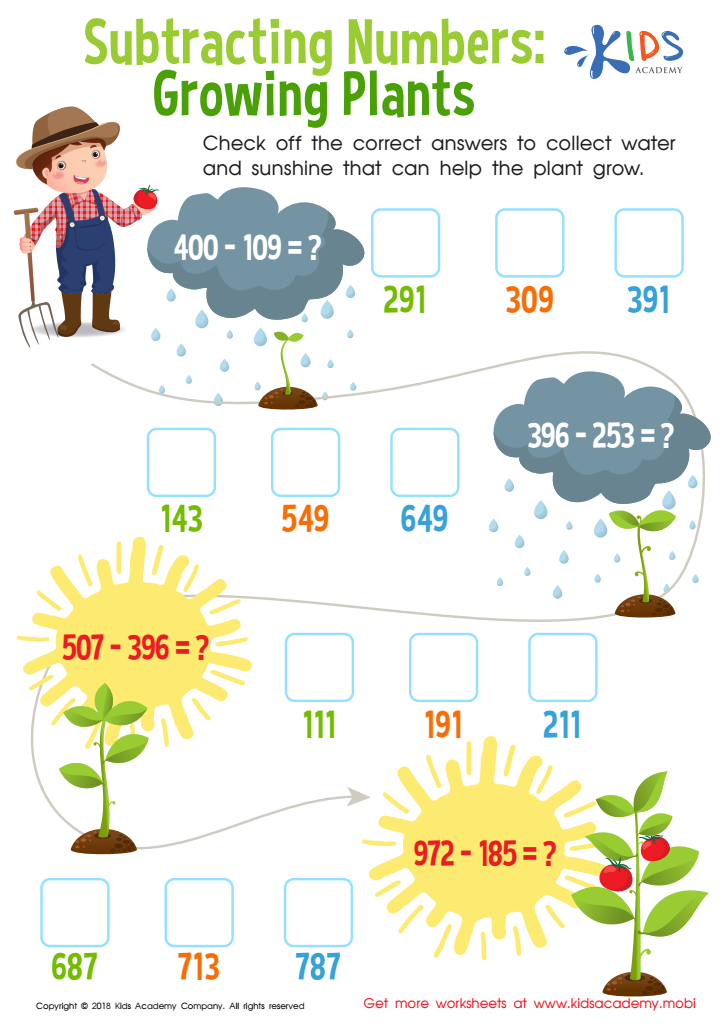

Subtracting Numbers: Growing Plants Worksheet
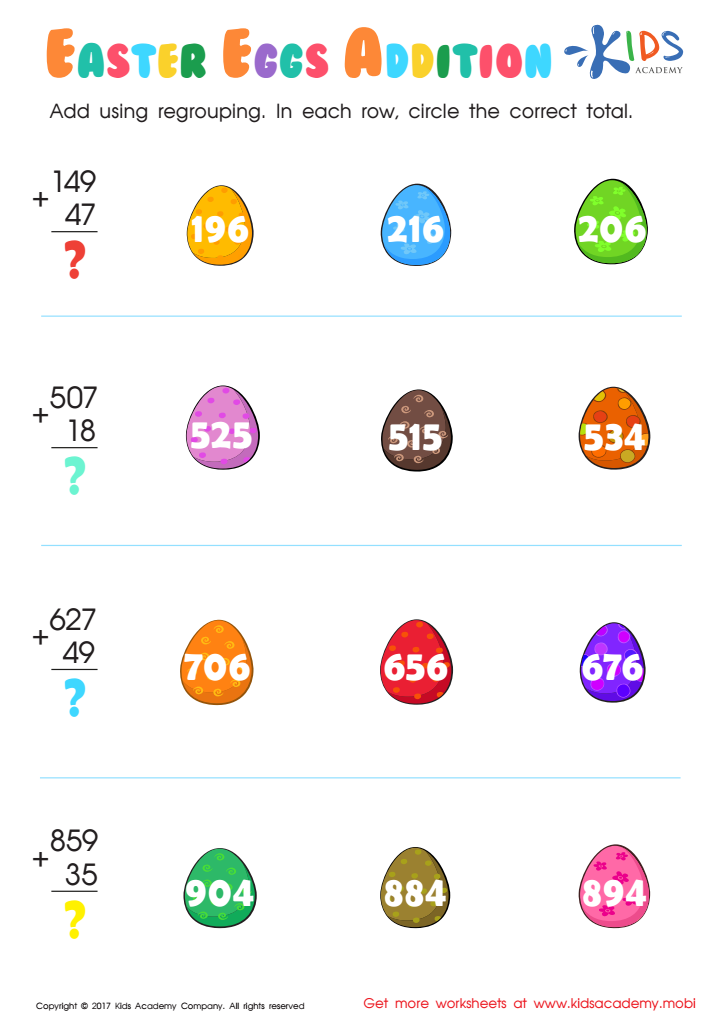

Addition with Regrouping Worksheet
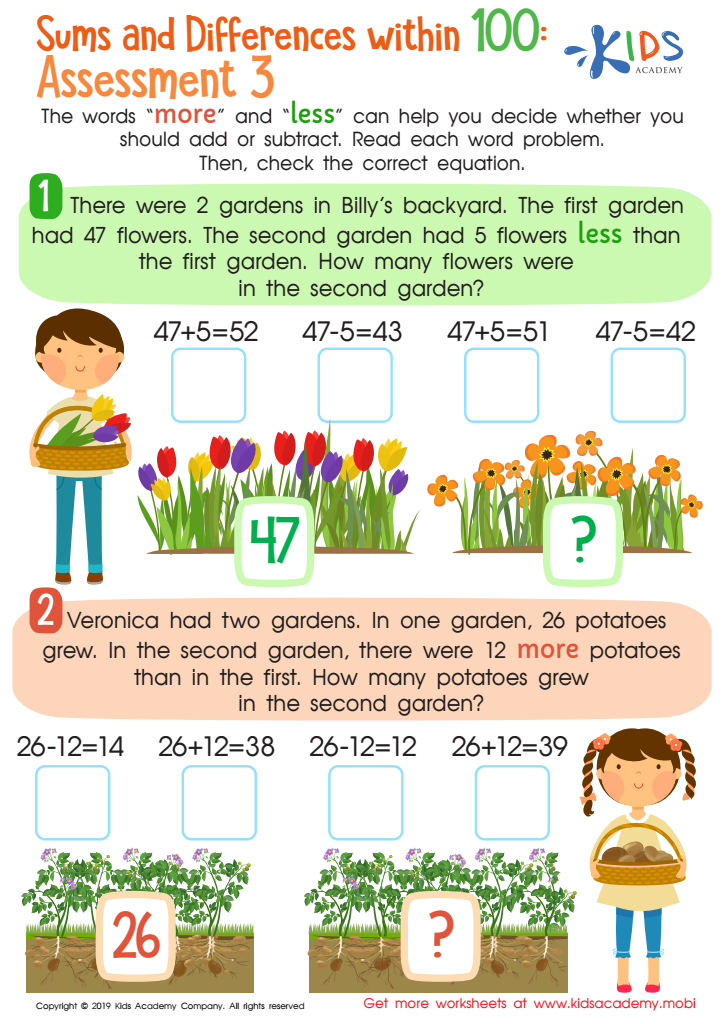

Sums and Differences Within 1 - Assessment 1 Worksheet
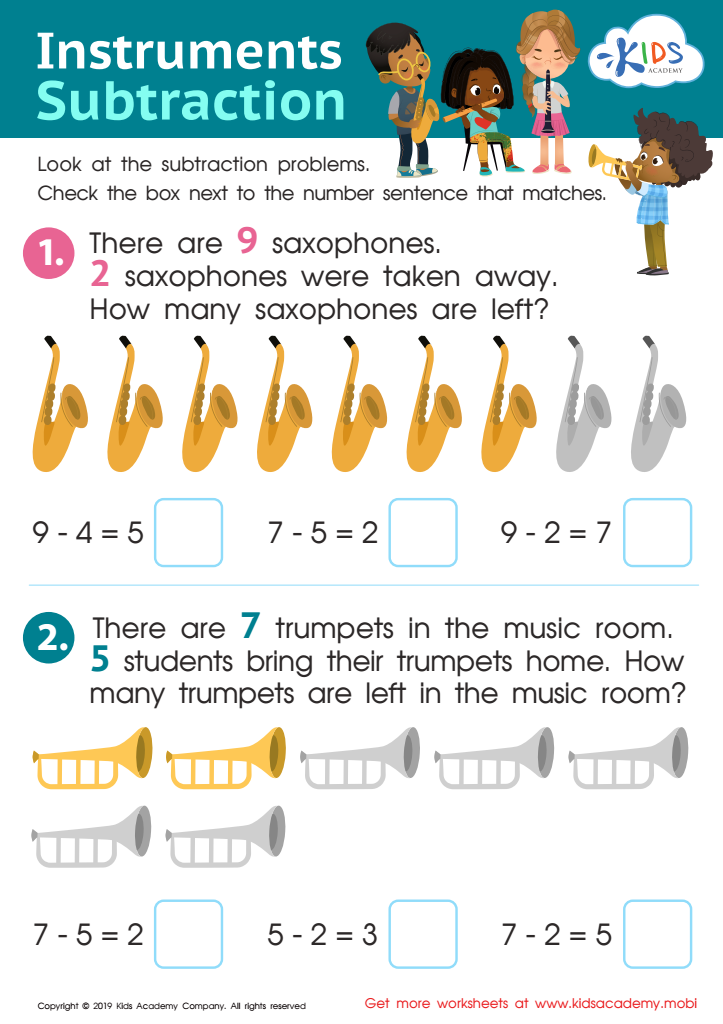

Instrument Subtraction Worksheet
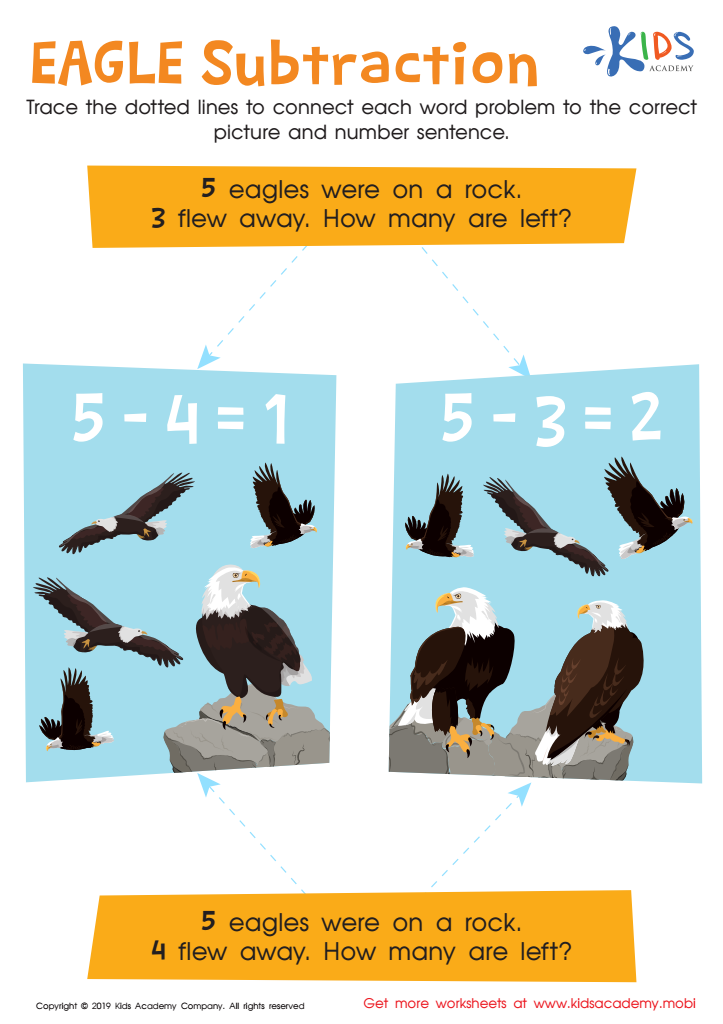

Eagle Subtraction Worksheet
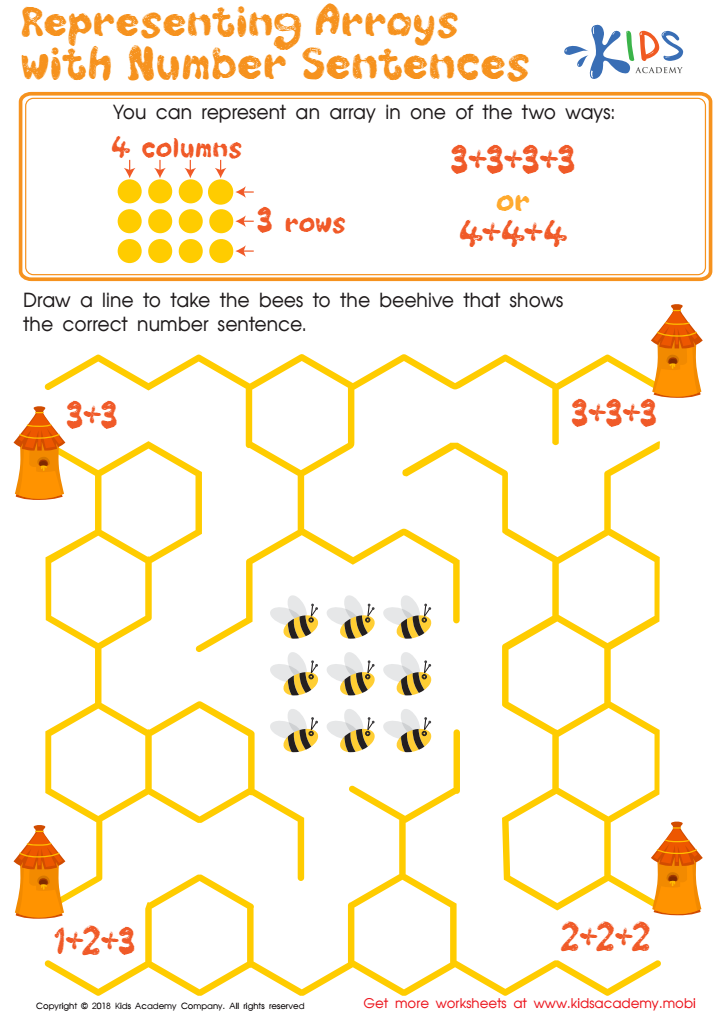

Representing Arrays with Number Sentences Worksheet
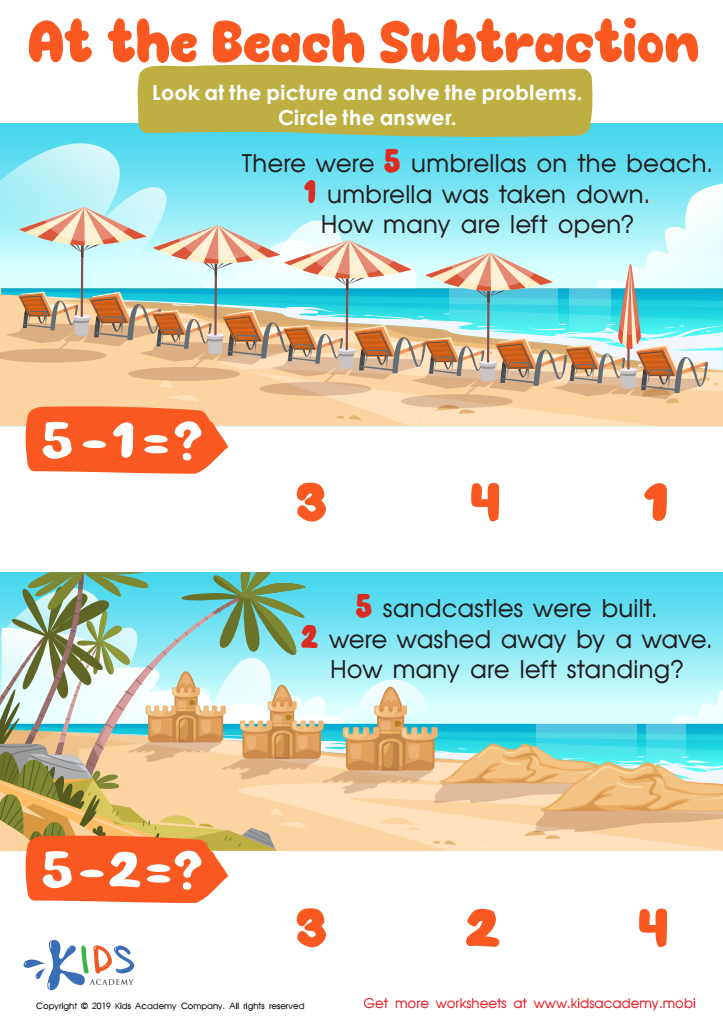

At the Beach Subtraction Worksheet
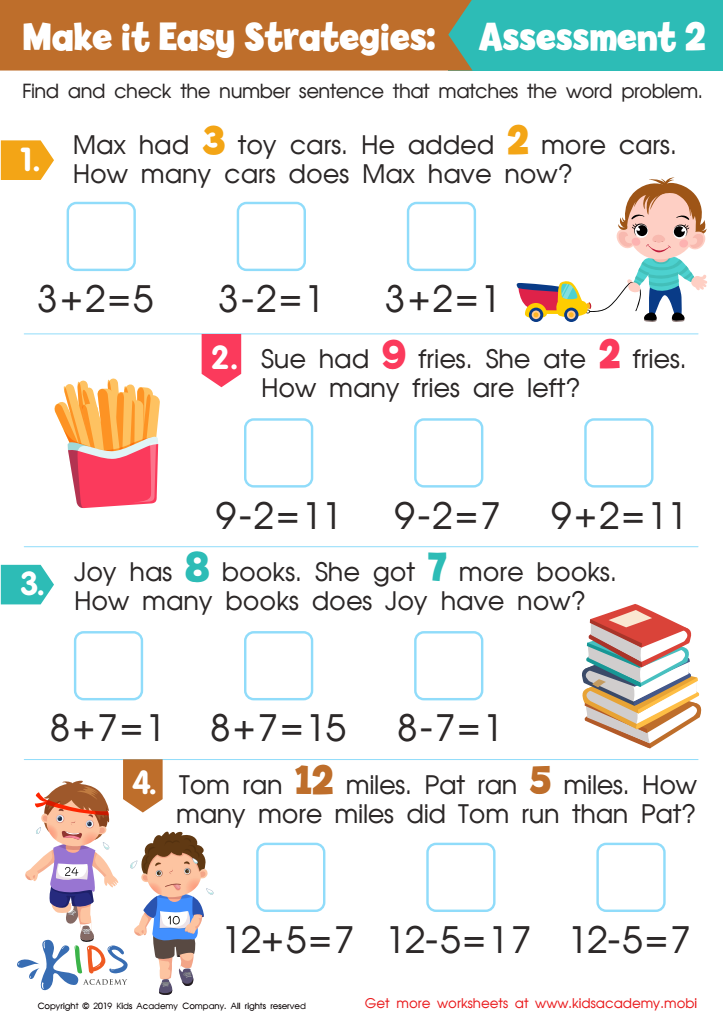

Make it Easy Strategies: Assessment 2 Worksheet
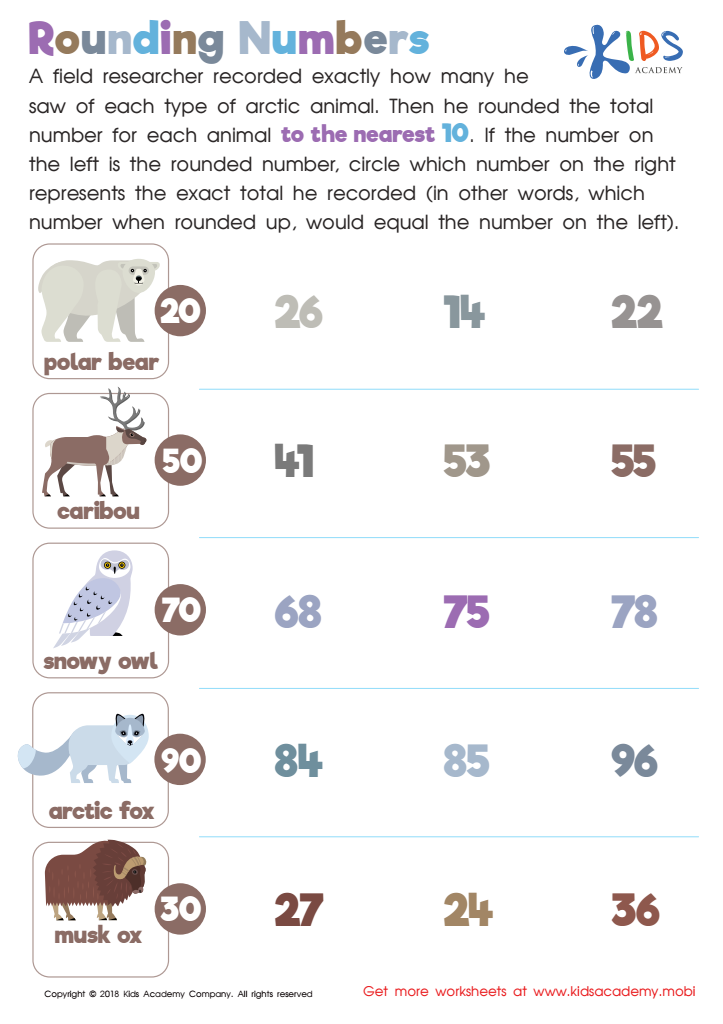

Rounding Numbers Worksheet
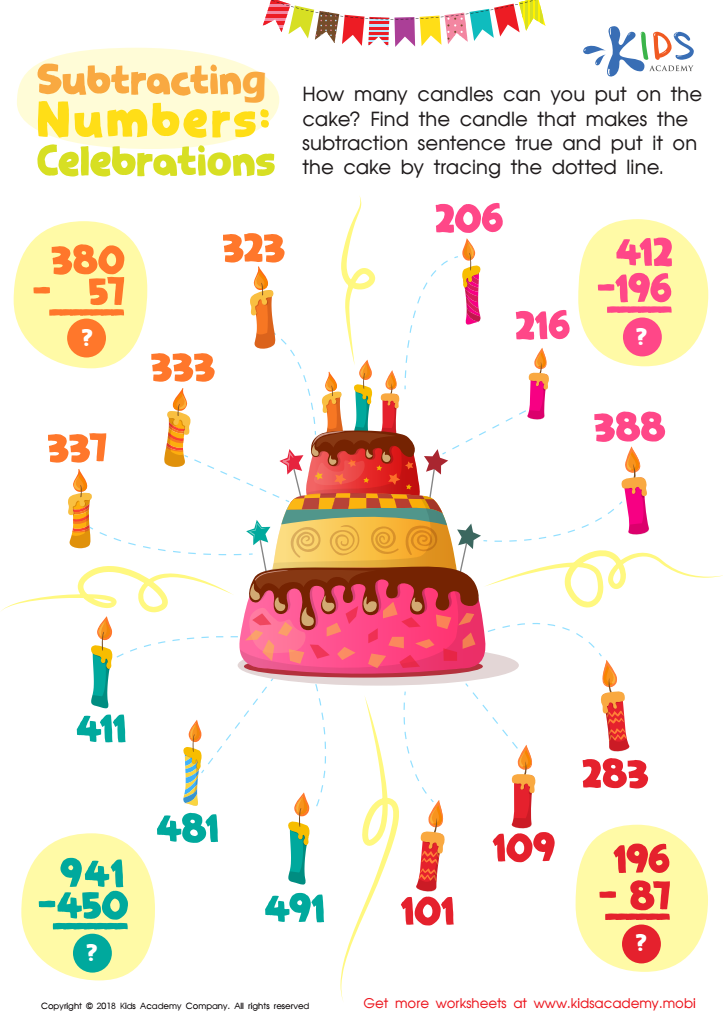

Subtracting Numbers: Celebrations Worksheet
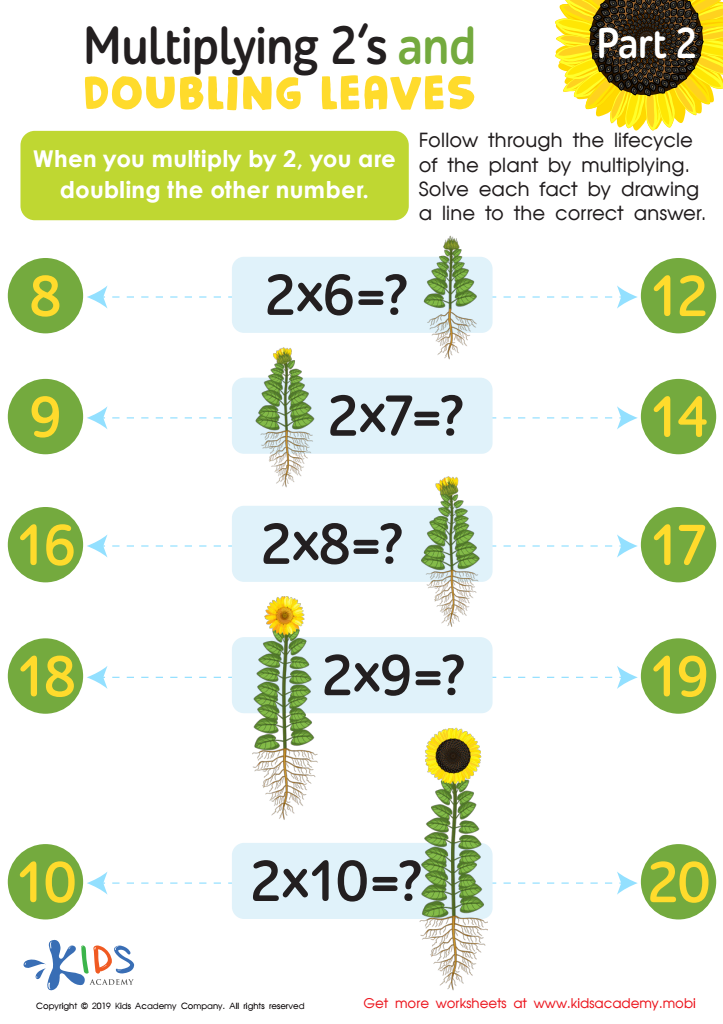

Multiplying 2’s and Doubling Leaves Part 2 Worksheet
Number comprehension is a critical foundation for 8-year-olds as it supports their overall cognitive development and future academic success. First, understanding numbers helps children manage everyday tasks, such as telling time, following schedules, and handling money. These practical skills are essential for fostering independence and confidence.
In the educational context, number comprehension is crucial because math is a cumulative subject; early competency paves the way for grasping more complex concepts later. Struggling with basic numbers can lead to math anxiety and avoidance, which are barriers to academic performance in higher grades.
Additionally, number skills correlate with problem-solving abilities. An 8-year-old with strong number sense can approach problems systematically, think logically, and develop perseverance. These attributes are not only vital in mathematics but also in other subjects and real-life situations.
Moreover, early math skills are closely linked to literacy development. Activities that integrate counting, sequencing, and number recognition often involve vocabulary building and following instructions, enhancing overall learning outcomes.
Therefore, parents and teachers should actively encourage and support number comprehension to build a robust educational and developmental foundation. Their engagement can foster a positive and proactive attitude towards learning, hand-in-hand with better performance and higher self-esteem in children.

 Assign to My Students
Assign to My Students

